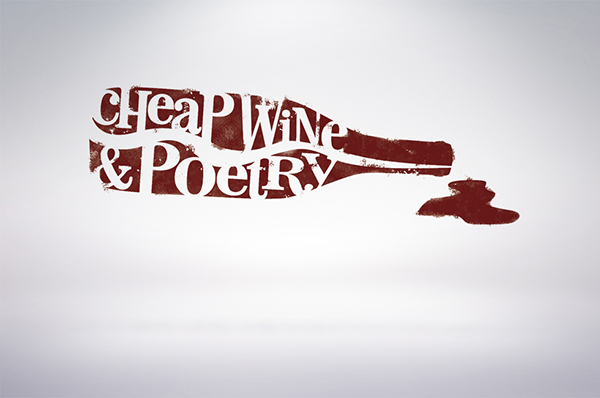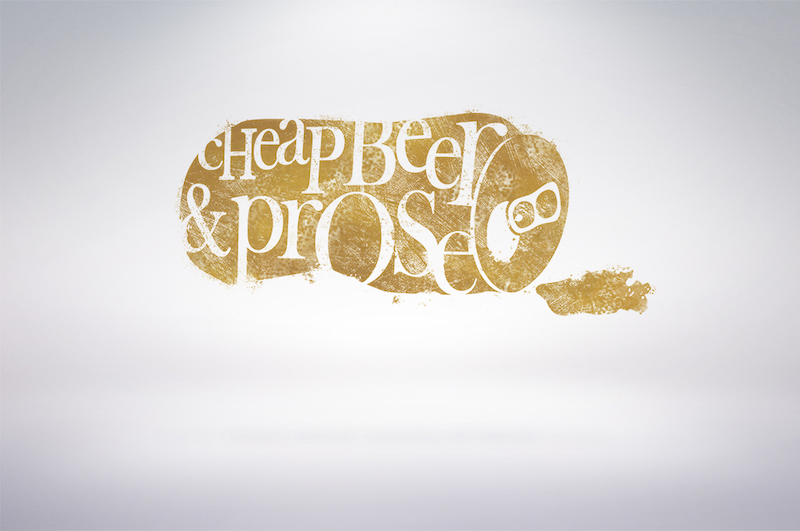Do the founders of Cheap Wine & Poetry still have what it takes to bring a boozy good time to Seattle's literary scene?

It's been four years since the Cheap Wine & Poetry and Cheap Beer & Prose reading series ended a long run at Hugo House. Founded by local authors Brian McGuigan and Steven Barker, and hosted by local writer/musician/comedian Jeanine Walker, CW&P enjoyed more than a decade at the top of the Seattle poetry scene — some of the region's most entertaining poets headlined each evening, along with a boisterous open mic fueled by big cups of wine that cost a buck a pop. The prose edition came along later, delivering the same rambunctious thrills with low-price, low-quality beer. It was the rare literary series that went out on top.
But now, McGuigan, Walker, and Barker are getting the band back together. Cheap Wine & Poetry will grace the stage at the renovated Hugo House for the very first time on March 19th, with a Cheap Beer & Prose relaunch following in May. The slate for the first three outings looks just as good as ever, with readers including Sarah Galvin, Laura Da’, Anastacia-Renee, Ruth Dickey, Mattilda Sycamore, and Casandra Lopez. Perhaps the only real sign that any amount of time has passed is the fact that the cheap wine now goes for two bucks a glass.
I emailed Walker, Barker, and McGuigan to talk about what's new (and what hasn't changed) for the series.
If I recall correctly, the last time a CWP or a CBP happened was 2016. Given that more than a hundred thousand people moved to the region since then, there's a fairly large group of people who have never experienced the series before. Can you explain the idea behind the series and why it's different from other readings you might find in Seattle?
BRIAN MCGUIGAN: Steve and I started Cheap Wine & Poetry back in 2005 when we were a couple of early 20-somethings trying to find our way in the local literary community. The idea behind CW&P (and later Cheap Beer & Prose) was to create a fun, unpretentious reading series that brought different communities of writers together to share their work for an audience who isn’t afraid to let loose. In one night, you can hear new writing from a slam poet, a formalist, somebody getting their MFA, and a literati. You can see a stand-up comic read angsty teenage poetry and an essayist share a deeply personal story about their dog’s death that ends with a Boston Terrier lip-syncing Fleetwood Mac on stage. This is a reading series where anything goes. The cheap wine and beer help with that. Plus, we have Jeanine Walker, who always makes shit fun. I cannot wait to take the stage and fill Hugo House’s fancy, new auditorium with woos.
JEANINE WALKER: CWP & CBP are very relaxed, with the intention of having fun while promoting some really fantastic writing. I always felt that my job as host was to "fluff" the crowd so they'd be having a great time — I like telling jokes! — and then the audience would feel extra prepared to hear a dynamite piece that might be sad or hard to hear or in many other ways moving. I love the contrast of the drinking/jokes from stage/fun with the excellent writing that is the reason we all come out in the first place.

A big reason why I've always enjoyed the series is that you were great about finding and showcasing writers who were just about to break big locally. How do you find readers? Do you think you've still "got it" in terms of finding the Next Big Thing?
BRIAN MCGUIGAN: Just because we haven't been running a reading series doesn't mean we haven't been paying attention. We live in one of the most literary cities in the country. Both Seattle and the state as a whole are chockful of good writers.In my role at Artist Trust, I work with writers regularly and have gotten to know the work of quite a few who I’d consider the Next Big Thing, and Steve and Jeanine are super connected to the literary community and go to readings as well. Honestly, I think I’ve “got it” more than I ever had “it” before.
For the first few readings, we're bringing back some favorites like Jourdan Keith, Anastacia Renee, and Sarah Galvin as well as some first-timers, like Tessa Hulls (who just sold a graphic memoir that deserves your attention, Paul Bobby!), Paul Hlava, and Ramon Isao. We have a long list of writers we’re working through and have gotten emails from folks who have always wanted to read at this series. Finding the writers is the easy part. The inevitable hangovers are another story.
JEANINE WALKER: I've gotten to know a lot of high school writers over the years in Writers in the Schools and with the Youth Poet Laureate program, for which I've been one of the judges the past several years. Those writers are getting older and often the next big thing. I think finding the great writers is about observing, going to plenty of other readings, and reading our local literary magazines like Moss and PageBoy and Pacifica to find what we like by Seattle writers who are getting published and doing readings for these journals. And the open mic! In past years we've heard lots of people on the open mic who were great and went on to be featured readers (I am a former featured reader who first read at CWP on the open mic, in fact). We hope lots of people come to the open mic and stay out for it. It's an extra added fun part of every CWP & CBP.
What makes a great literary event?
BRIAN MCGUIGAN: Good writers who read well and leave the audience wanting more. Cheap drinks don't hurt but aren’t required.
STEVEN BARKER: A comfortable atmosphere, which is very much established by the host. Both the readers and audience should feel comfortable. Readers that put the same effort into reading their work as they do writing it. A diverse style of readers, too.
JEANINE WALKER: See my answer above, I would say. I think the best literary events a) have great writing and b) are innovative and fun in their approach. I love that drinks are dirt cheap and everyone can get drunk. But they don't have to! Because it's fun for everyone. I sometimes feel at events that people want to go to the bar but feel they'll miss things or they shouldn't because nobody else is, etc. ... we like building in time for getting drinks and encouraging it. So people who would rather not drink, that's great. And those who want to enjoy the cheap booze and have a fun time, we are all for that. It's a party! A get-your-literary-fix-in-spades kind of party. I'm so excited for it to start again.
Cheap booze tends to hit harder than the top-shelf stuff—especially as you age. Four years later, do you have any good hangover cures you'd like to share?
STEVEN BARKER: It's best to be proactive and drink water every other round. When I don't take my own advice, I put myself back together with a smoothie made with one banana, a fist full of spinach, 10 oz. of coconut water, a caffeinated-cherry flavored Nuun, and a half second pour of apple cider vinegar, with a B12 chewable chaser.
BRIAN MCGUIGAN: They say with age comes wisdom, but I'm almost 40 and I still haven't mastered the hangover cure. I drink a gallon of water every day, so that helps. For a real bad hangover, bacon or a Bloody Mary or a Bloody Mary with bacon.
JEANINE WALKER: I think the best hangover cure for me as I age is to not drink at all. Or not drink the cheap stuff. I can't drink PBR anymore, period. I will get sick. I'll definitely be trying the Chuck Shaw, but I'm not optimistic. Someone once told me bananas and coconut water help restore everything back to normal. I don't know. We'll see. I am a little scared for March 19.